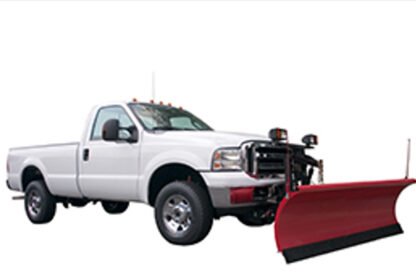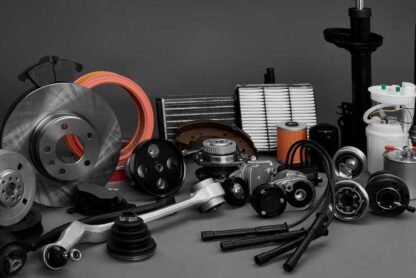Welcome to a trip to the world of transportation! In Today’s face-paced business environment, effective transportation solutions are critical to ensuring seamless and timely delivery of goods and services across sectors. Flatbed and reefer trucking are diverse and necessary solutions for enterprises with specialized shipping needs.
In this article, we’ll delve into transportation’s significance for businesses and explore when we use flatbed trucking and reefer trucking. These transportation modes are useful to a wide range of companies, from the transfer of colossal gear and building materials to the secure delivery of temperature-sensitive commodities.
Importance of Transportation for Businesses
Before we dive into the specific applications of flatbed and reefer trucking, It’s essential to appreciate the importance of transportation in modern business. A well-organized transportation system is the backbone of every supply chain, ensuring that items arrive in excellent shape and on schedule at their destinations.
Efficient transportation promotes economic progress and allow firms to expand beyond regional boundaries. The logistics network relies on numerous transportation techniques, including flatbed and reefer trucking, to move raw materials from the source to the manufacturing facility or finished goods to end users.
Now, let’s look at the most prevalent applications for each specialty transportation service.
Flatbed Trucking: Versatility to Wheels
Flatbed trucking is a perfect alternative for hauling huge, heavy, or oddly shaped freight. Their open shapes enable simple loading and unloading, making them suitable for things not fitted in enclosed trailers.
Following are some of the frequent applications for flatbed trucking:
● Construction Materials
The construction sector extensively relies on flatbed trucking to deliver building supplies such as steel beams, timber, concrete blocks, and heavy gear. Flatbeds give the flexibility to move large and heavy building components effectively.
● Heavy Machinery
Heavy machinery such as excavators, cranes, and industrial equipment is frequently transported at manufacturing plants and construction sites. Flatbed trucks are the preferred method of transporting these huge goods safely and securely.
● Agricultural Equipment
Agriculture frequently uses flatbed trucks to transport farm equipment such as tractors, harvesters, and irrigation apparatus. These trucks make the timely delivery of farm equipment possible, resulting in greater industrial production.
● Oversized Cargo
Flatbed trucking is the best alternative for things larger than typical dimensions, such as wide turbine components, prefabricated buildings, or airplane parts, because flatbed trucks do not have sides or roofs, so they can easily move enormous loads.
● Industrial Supplies
Raw materials and industrial supplies are frequently delivered to manufacturing plants using flatbed trucks. These trucks deliver items that would not fit in typical enclosed trailers.
Reefer Trucking: Keeping Things Cool And Fresh
Delivering manufactured goods to the end users globally is not an easy task, thanks to the drivers who risk their lives so that we can get fresh food. But this daunting task can be made simpler via effective transportation management in business supply chains.
Reefer trucks, often known as refrigerated trucks, are temperature-controlled vehicles perfect for delivering perishable commodities and delicate materials.
Following are some of the frequent applications of refrigerated trucking.
● Food And Beverages
Reefer trucks are primarily used in the food business to carry perishable goods such as fresh fruits, dairy products, meat, and frozen goods. Maintaining the proper temperature throughout shipping guarantees that the items arrive in pristine shape.
● Pharmaceuticals
Pharmaceutical corporations frequently use reefer trucks to carry temperature-sensitive pharmaceuticals and vaccinations. The regulated temperature in reefer trucks aids in the preservation of these critical medical supplies.
● Floral Products
Florists and nurseries use reefer trucking systems to transport delicate flowers and plants. The temperature-controlled facility guarantees that the floral goods stay fresh and high-quality in transit.
● Chemicals
Certain chemicals and hazardous materials must be transported at specific temperatures to avoid deterioration and combustion. Reefer Trucks offers the required safety precautions while transporting such commodities.
● Cosmetics And Personal Care Products
Reefer Trucking also finds applications in transporting cosmetics and personal care products sensitive to temperature changes. Keeping these items in controlled conditions maintains their integrity and shelf life.
Key Takeaway!
Finally, transportation serves as a vital link between business and their suppliers and customers. Flatbed and reefer trucking serve crucial roles in various sectors, catering to specialized transportation demands and ensuring corporate operations run smoothly.
Flatbed trucks provide the adaptability and flexibility needed to move big and irregularly shaped cargo, while reefer trucks keep perishable and dedicated goods at a proper temperature. These logistics service providers are the driving force behind efficient supply chain management, from building materials and heavy gear to fresh fruits and medications.
Remember the importance of flatbed trucking transporting construction equipment, or refer to trucks bringing fresh fruit the next time you see one. They play an important role in keeping our world moving and companies growing.









